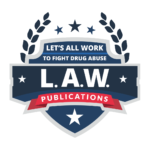
Books and Badges
2024 | Fall
Hidden Potential
The Science of Achieving Greater Things
>> Adam Grant
Billy Grogan
Books and Badges
2024 | Fall
Hidden Potential
The Science of Achieving Greater Things

Billy Grogan
At first glance, Adam Grant’s “Hidden Potential: The Science of Achieving Greater Things” wouldn’t be an obvious book for law enforcement leaders. However, the book is a compelling exploration of how individuals and organizations can harness their latent abilities to achieve extraordinary results.
Grant, a renowned organizational psychologist, delves into the intricacies of human potential and presents a framework for unlocking it. This book is not just a treatise on personal development but also a valuable resource for leaders, particularly in fields like law enforcement, where the stakes are high and the need for peak performance is paramount.
I love reading books by Adam Grant because they are written well, are easy to read, and uses many data studies to prove his points.
The Core Premise
Grant’s central thesis is that potential is not a fixed trait but a dynamic quality that can be nurtured and developed. He challenges the conventional wisdom that talent is innate and immutable, arguing instead that with the right mindset, environment, and strategies, anyone can achieve greatness.
For law enforcement leaders, this perspective is transformative. It suggests that their officers’ capabilities can be significantly enhanced through deliberate efforts, leading to a more effective and resilient force. I’ve witnessed too many instances where law enforcement leaders give up too early on young officers and even young law enforcement leaders when they make mistakes.
There are three ways ways that law enforcement leaders can recognize and help develop the hidden potential of their staff.
- Mindset and Motivation
Grant emphasizes the importance of a growth mindset, a concept popularized by psychologist Carol Dweck. This mindset is crucial for law enforcement leaders who often deal with challenging and rapidly changing situations. By fostering a growth mindset within their teams, leaders can encourage officers to view setbacks as opportunities for learning and growth rather than as insurmountable obstacles.
For instance, consider a police department grappling with rising crime rates in a particular neighborhood. Instead of seeing this as a failure, a leader with a growth mindset might encourage the team to analyze the situation, learn from their experiences, and develop new strategies. This approach not only improves the department’s effectiveness but also boosts morale by empowering officers to take an active role in problem-solving.
- Environment and Culture
Grant discusses the role of the environment in unlocking potential. For law enforcement leaders, this translates into creating a culture that supports continuous improvement and innovation. This could involve implementing regular training sessions, encouraging open communication, and promoting a collaborative atmosphere.
A powerful metaphor Grant uses is that of a garden. Just as plants need the right conditions to flourish, officers need a supportive environment to thrive. This means providing them with the tools, resources, and opportunities to develop their skills. It also involves creating a culture where mistakes are seen as part of the learning process rather than grounds for punishment. This can be especially difficult.
- Strategies for Development
Grant outlines several strategies for developing potential, including mentorship, feedback, and deliberate practice. These strategies are particularly relevant for law enforcement leaders who are responsible for the ongoing development of their teams.
Mentorship:
Mentorship plays a crucial role in law enforcement, where the transfer of knowledge and skills is often experiential. Experienced officers can mentor newer recruits, providing guidance and sharing insights that are not found in training manuals. This not only accelerates the learning curve for new officers but also fosters a sense of camaraderie and continuity within the force.
Feedback:
Effective feedback is another cornerstone of development. Grant suggests that feedback should be specific, constructive, and actionable. For law enforcement leaders, this means providing officers with clear and honest assessments of their performance, along with practical advice on how to improve. Regular performance reviews, debriefing sessions after incidents, and one-on-one meetings can all be effective tools for delivering feedback.
Too often, we as leaders are not willing to have those difficult conversations we need to have with our staff, which will ultimately result in them growing and reaching their potential.
Deliberate Practice:
Deliberate practice involves focused, goal-oriented training designed to improve specific skills. For law enforcement, this could mean scenario-based training exercises, firearms training, or crisis negotiation drills. The key is to make practice sessions as realistic and relevant as possible, allowing officers to develop the skills they need to perform under pressure.
One particularly powerful metaphor Grant uses is that of a sculptor chiseling away at a block of marble to reveal a masterpiece. This metaphor aptly describes the process of unlocking hidden potential – it requires patience, effort, and a vision of what could be.
An example from the book that resonates with law enforcement is the story of how the New York Police Department (NYPD) transformed its approach to crime reduction in the 1990s. By adopting a data-driven strategy known as CompStat, the NYPD was able to identify crime patterns and allocate resources more effectively. This shift in strategy not only reduced crime rates but also demonstrated the power of leveraging hidden potential through innovative thinking and continuous improvement.
Conclusion
“Hidden Potential” is a valuable resource for law enforcement leaders seeking to elevate their teams’ performance. Grant’s insights into mindset, environment, and development strategies provide a roadmap for unlocking the latent abilities of officers. By fostering a growth mindset, creating a supportive culture, and implementing targeted development strategies, law enforcement leaders can transform their teams into high-performing units capable of meeting the challenges of modern policing.
In conclusion, Adam Grant’s “Hidden Potential” is more than just a book about personal development; it is a guide for leaders who aspire to bring out the best in their people. For those in law enforcement, where the demands are great and the margins for error are slim, this book offers practical and profound insights into how to achieve greater things. By applying Grant’s principles, law enforcement leaders can ensure that their officers are not just capable but exceptional, ready to serve and protect with the highest level of proficiency and dedication.

Chief Billy Grogan
Chief Billy Grogan (Ret.) is a Senior Vice President with Sumter Local Government Consulting. Chief Grogan has over 43 years of law enforcement experience and 13 years as the Dunwoody Police Chief. He is a graduate of the FBI National Academy, Georgia Command College, and the Georgia International Law Enforcement Exchange (GILEE). He holds a Master’s Degree in Public Administration from Columbus State University.












